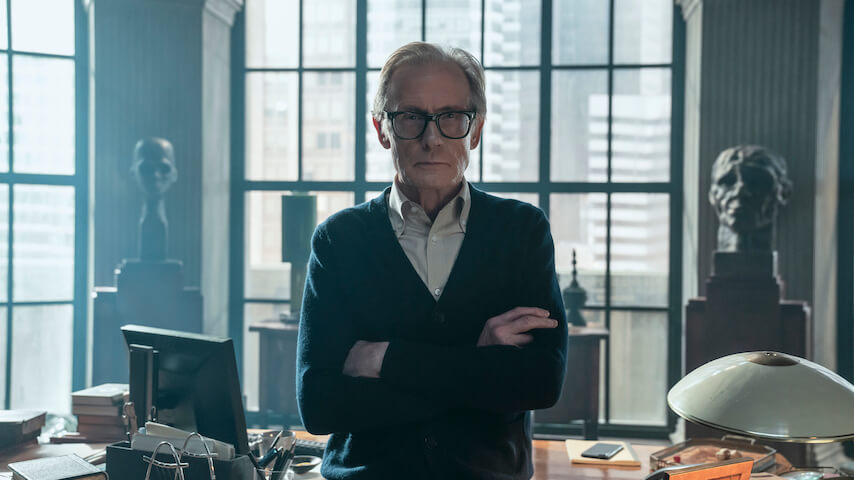In Harlan Coben's Lazarus, a groan-worthy ghost is born
Prime Video's confounding psychological thriller stars Bill Nighy and Sam Claflin.
Photo: Ben Blackall/Prime
That the premise of Harlan Coben’s Lazarus is preposterous is not really all that rare. After all, TV crime dramas have long had to find irreverent if not outright ridiculous twists on this well-worn genre in order to keep audiences interested and entertained. But the extent to which this particular preposterous premise is stretched to its limits, tweaked on any given episode, and all around dismissed when plot holes require it is so egregious you have to wonder why Coben and co-creator Danny Brocklehurst even chose to add a ghostly supernatural element to this series about a forensic psychologist studying cold cases in the first place. For not only does it add very little to the proceedings, it ends up being the show’s greatest liability, making it laughable at almost every turn despite solid turns from Bill Nighy and Sam Claflin.
Then again, when you title your series Lazarus about a forensic psychologist named Joel Lazarus (groan) who starts seeing the ghost of his late father Dr. Jonathan Lazarus, as if he’d risen back from the dead (double groan), you probably aren’t really bothered with how obvious your metaphors and plot conceits are. The overarching premise is not, alas, simple: When Joel (Claflin) learns that his somewhat estranged dad (Nighy) has committed suicide in the office where he saw countless patients as a therapist over the decades, he’s convinced that such an outcome cannot be true. He’s especially suspicious because only the final sentence in his suicide note has been found, so he starts investigating who could possibly have tried to murder his father. And, in the process, he begins to, uh, see ghosts.
Yes, ghosts—or maybe they’re memories or spectral figures reduced to reliving moments that took place in the ridiculously ornate therapist office where Dr. Lazarus used to see everyone from women in terrible relationships to troubled young men with anger issues. As if to make things clearer, but also muddying them altogether, Nighy’s Lazarus appears to Joel in said office and tells him those ghosts he’s been seeing (and who address him as his father, which is as confusing as it sounds) have all been murdered. And so Joel, in addition to investigating his father’s open-and-shut suicide, finds himself uncovering cold cases that may or may not be linked together. All the while, he’s being helped or haunted by his father’s ghost, who may or may not be a product of Laz’s clearly tortured, grieving mind.
This narrative engine (ghosts help Joel lead the police in finding long-buried bodies and revisit unsolved cases that never quite added up) is intriguing. Is it a bit too convenient and narratively useful to have Joel’s best friend from childhood now be a cop in charge of some of those investigations? Probably. But plausibility was never going to be the name of the game in a series like this one, which doesn’t leave well enough alone and, instead, piles trope upon trope onto Joel’s newfound life as a ghost therapist-cum-cold case investigator. As has become de rigueur in a show of this sort, there is past violent incident to be explored. Yes, we may be following Laz in the present, but flashbacks to a very specific night from his younger years populate almost every single episode.
 Keep scrolling for more great stories.
Keep scrolling for more great stories.
